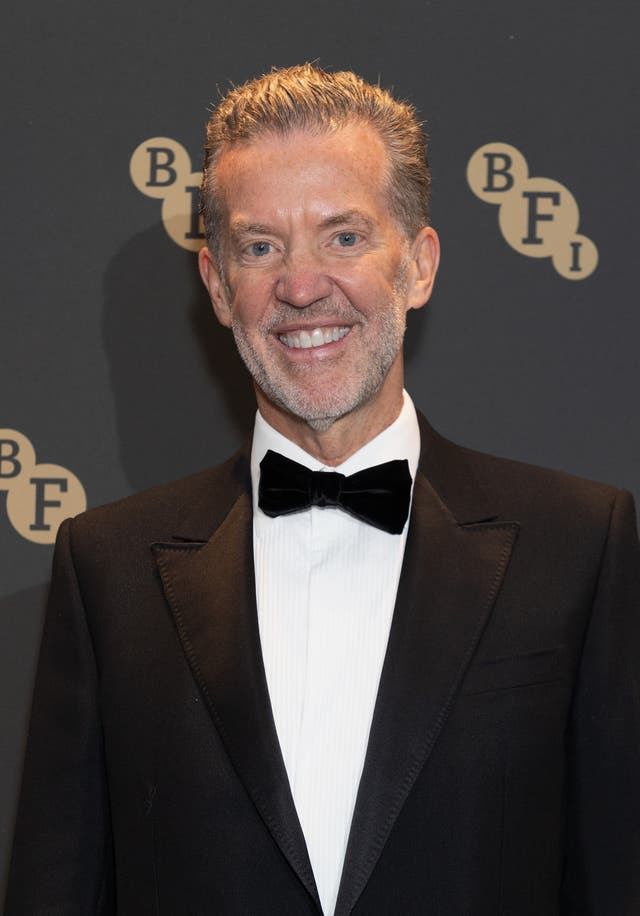Brian Cox says Trump’s tariffs would be ‘absolute disaster’ for upcoming film
The film industry has raised concerns that US President Donald Trump’s plan would impact freelancers in the UK and would be difficult to enact.

Scottish actor Brian Cox has said Donald Trump’s plan to impose 100% tariffs on non-US movies would be an “absolute disaster” for his upcoming film.
The US president said in a post on his Truth Social platform that he has authorised government departments to impose the tariff “on any and all movies coming into our country that are produced in foreign lands”.
The film industry has raised concerns that this would impact freelancers in the UK and would be difficult to enact.
Cox, 78, told Times Radio that Mr Trump’s administration is “not really understanding the point of view of how films are made, and what films cost, (how) the cost of films (has) gone up and the cost of films in America went up considerably”.
“So it’s not quite right to say Hollywood’s being ignored, things have moved on, it’s become nationwide in America,” he added.
“It’s a kind of nonsense and a divine ignorance on all their parts.”
Cox said that US films have “moved” in a different direction towards other cities such as Atlanta, and away from the previous hub of Los Angeles.
He added: “I’ve just directed my first movie with a very modest budget in Scotland, we don’t make a lot of films in Scotland.
“And the idea of (a) 100% tariff on my film would be a disaster, an absolute disaster.”

The Succession star also said the move is “going to make everything more expensive”, and said the proposal had not been “thought through” by American actor and Oscar winner Jon Voight, who put the plan forward to Mr Trump.
Cox, whose upcoming project Glenrothan sees Scottish star Alan Cumming play his brother, said he would “happily raise” his concerns with the UK Government.
When asked about the strong entertainment unions in the US having an effect on the industry going abroad, he said: “I think that’s partially true… everyone’s trying to make a film for the (best) amount of money.”
Tim Richards, founder and chief executive of Vue, told the PA news agency on Tuesday that there had been “hope” the filmmaking industry, which is now “scrambling”, would escape from tariffs.
He added: “I think the announcement itself probably raised more questions than answers, and with all of these things the devil will be in the details, trying to work out what constitutes a US film, what constitutes a foreign film.
“What are the tariffs and how will they actually be applied to film production, given that it’s an art form, it’s kind of an intangible item that’s not something you can put in your pocket, not something you can drive. And how would they actually do it?”

Mr Richards said the industry will “take some comfort that there will be a further discussion” with Mr Trump in an upcoming meeting.
However, he disagreed with the US president’s assertion that the American film industry is dying, saying it “is not”, but pointing out it “got hit hard by the pandemic and then by the (Writers Guild of America) WGA and Sag-Aftra (which represents actors) strikes”.
Mr Richards appeared sceptical that it would hit cinemas in a big way, as “we’ve been through a pandemic, and we’ve been through strikes, and we’re still here”, and said the “commitment to filmmaking by the studios is unprecedented”, citing Amazon MGM Studios increasing its slate of upcoming releases.
He also said that US companies filming in the UK will continue as “there are unique historical, geographical or even topographical locations in the UK, and that’s all on top of tax credits”, and said the impact will be minimal on foreign films as they “have never done that well in the US”.
Mr Richards added: “Film production has been moving out of southern California and Hollywood for some time, and there have been very aggressive tax breaks put in, particularly in the southern states, but across the country, to encourage filmmakers to go down and shoot their films in the Deep South.
“Internationally, it tends to be Canada, the UK and Australia, and then kind of a number of other markets beyond that that also have tax credits put in place.”
Philippa Childs, head of the Broadcasting, Entertainment, Communications and Theatre Union (Bectu), said the tariffs “could deal a knockout blow to an industry that is only just recovering and will be really worrying news for tens of thousands of skilled freelancers who make films in the UK”.





